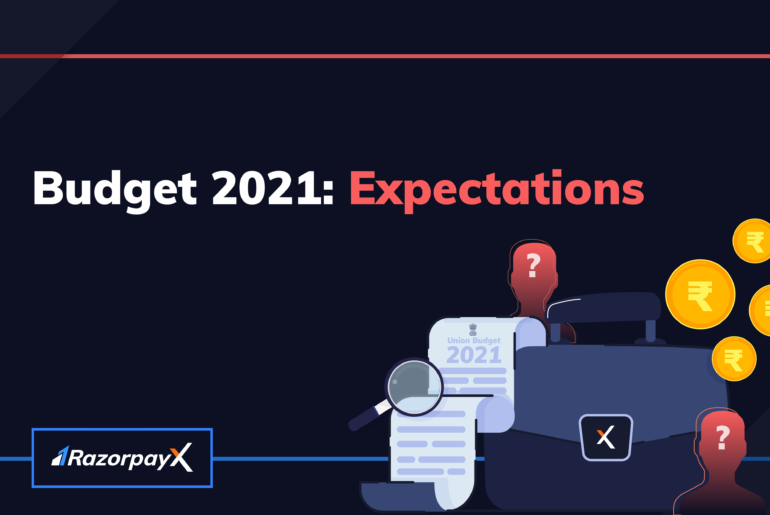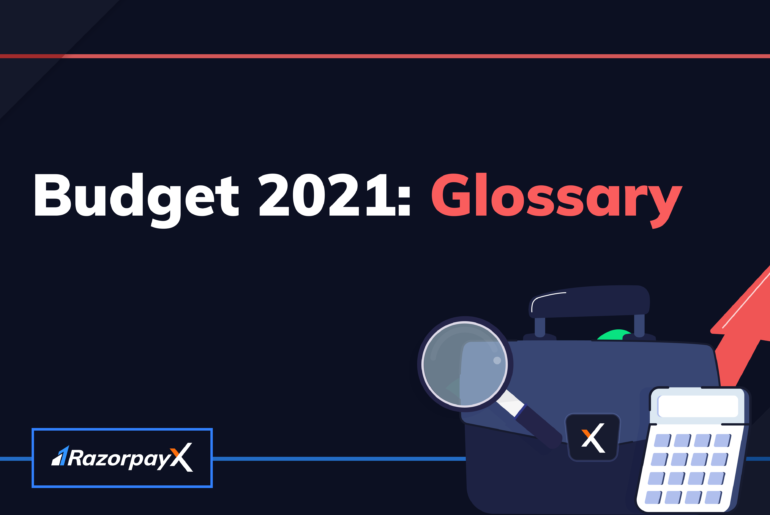Budget 2021 Highlights: Our Honorable Finance Minister, Nirmala Sitharaman has unveiled the first post-pandemic Budget of India. The Union Budget 2021 aims to boost income for businesses, in a bid to revive economic growth that has slumped to the lowest levels since the COVID-19 outbreak.
To strengthen the Atmanirbhar Bharat Abhiyaan, the government proposed 6 pillars – health and wellbeing, capital and infrastructure, inclusive development, reinvigorating human capital, innovation and R&D, and minimum government & maximum governance.
The 2021 Budget emphasised primarily on healthcare and infrastructure sectors. Also, a host of substantial announcements were made on the disinvestment & foreign investment front.
While no significant income tax changes were made in the Budget 2021, the government did announce measures for small businesses and startups.
Read on to know the key highlights of the Union Budget 2021 proposed on 1st February.
Healthcare
Since the pandemic hit close to 10% of the population, the highest-ever allocation to the healthcare sector was much needed. The government allocated Rs 35,000 crore for COVID-19 vaccination expenditure in FY 2021-22. The spending will focus on preventive & curative healthcare and well-being of the Indian population.
Startups & MSMEs
Small businesses and startups are important pillars of the Indian economy. Since they were badly affected because of the pandemic, much awaited reforms were needed in these sectors. Here are the highlights of Budget 2021.
Startups (including OPCs)
- Government to allow incorporation of One Person Companies (OPCs) with no restrictions on paid-up capital and turnover
- OPC can convert into any other type of company at any time
- The residency limit reduced for an Indian citizen to set up an OPC from 182 days to 120 days
- Allowing Non-Resident Indians (NRIs) to incorporate OPCs in India
- Extension of tax holiday for startups by one year up to 31st March 2022
- Capital gains exemption for investment in startups extended till 31st March 2022
MSMEs
- FM proposed doubling of MSME allocation at Rs 15,700 crore for medium and small enterprises in FY 2021-22
- Change the definition of “small company” under the Companies Act 2013 by increasing their threshold for paid-up capital, from ‘not exceeding 50 lakh, to not exceeding 2 crore’ and turnover from ‘not exceeding 2 crore’ to ‘not exceeding 20 crore’
Foreign Investments
Many experts speculated that Budget 2021 will enable foreign investments in India. Here are some of the key takeaways.
- New rules to be notified for the elimination of double tax for NRIs on foreign retirement funds
- Foreign investors will be allowed to invest in insurance companies
- Infrastructure Debt Funds (IDFs) made eligible to raise funds by issuing Zero-Coupon Bonds (ZCBs)
- Relaxation on some conditions relating to prohibition on private funding, restriction on commercial activities, and direct investment
- Deduction of tax on dividend income at lower treaty rate for Foreign Portfolio Investors (FPIs)
Labour Welfare
During the Budget, FM also made a few announcements that are in favour of employees & gig workers. Here are some highlights of Budget 2021.
- Late deposit of employee’s PF contribution by the employer not to be allowed as a deduction to the employer
- Social security benefits will extend to gig and platform workers. Minimum wages will apply to all categories of workers, and they will all be covered by the Employees State Insurance Corporation
- Compliance burden on employers will be reduced with a single registration and licensing, and online returns portal
Direct tax changes
While the Budget 2021 had no major amendments to individual taxation, here are some key changes announced for businesses in Budget 2021.
- Advance tax liability on dividend income shall arise only after payment of dividend
- No tax filing for seniors above 75 years of age with pension and interest income only
- Anyone with a taxable income of up to Rs 50 lakh, disputed income of up to Rs 10 lakh is eligible to approach dispute resolution committee
- Tax exemption for relocating funds to IFSC
- Extension of tax holiday for startups under section 80-IAC by one more year up to 31st March 2022
- Tax audit threshold increased from Rs 5 crore to Rs 10 crore to promote digital payments
- Time limit reduced for reopening of assessment to 3 years from the present 6 years. In serious tax evasion cases, only where there is evidence of concealment of income of Rs 50 lakh or more in a year, can the assessment be reopened up to 10 years
Indirect tax changes
Here are the changes made to indirect tax laws in Budget 2021.
- Duty on steel screws and plastic builderware increased to 15%
- Prawn feed to attract customs duty of 15% from the earlier 5%
- Exemption on import of duty-free items rationalized to incentivize exporters of garments, leather, and handicraft items
- Exemption on imports of certain kind of leathers withdrawn
- Customs duty on finished synthetic gemstones raised to encourage domestic processing
- Duty on some parts of mobiles revised to 2.5% from ‘nil’ rate
- Customs duty reduced uniformly to 7.5% on semis, flat, and long products of non-alloy, alloy, and stainless steels
- Duty on steel scrap exempted up to 31st March 2022
- Anti Dumping Duty (ADD) and Counter Veiling Duty (CVD) revoked on certain steel products
- Duty on copper scrap reduced from 5% to 2.5%
- Basic Customs Duty (BCD) on caprolactam, nylon chips, and nylon fibre & yarn reduced to 5%
- Calibrated customs duty rates on chemicals to encourage domestic value addition and to remove inversions
- Duty on Naphtha reduced to 2.5%
- Duty on solar inverters raised from 5% to 20%, and on solar lanterns from 5% to 15% to encourage domestic production
- Customs duty on cotton increased from nil to 10%, and on raw silk and silk yarn from 10% to 15%.
- Withdrawal of end-use based concession on denatured ethyl alcohol
- Agriculture Infrastructure and Development Cess (AIDC) on a small number of items to be introduced
- Turant Customs initiative – a faceless, paperless, and contactless customs measure introduced to rationalize procedures and ease compliance
Other highlights of Budget 2021
Compliance
- The government to consolidate provisions of the SEBI Act, Depositories Act, Securities Contracts Regulation Act, and the Government Securities Act under one umbrella
- The Insurance Act 1938 will allow higher FDI, increasing FDI limit in insurance from 49% to 74%
- NCLT framework to strengthen, e-court systems to be established, alternate methods of debt resolution & special framework for MSMEs to be introduced by the government
- Launch of data analytics, artificial intelligence, machine learning driven MCA21 Version 3.0 in FY 2021-22
Disinvestment
- Strategic disinvestment of BPCL, Air India, Shipping Corporation of India, Container Corporation of India, IDBI Bank, BEML, Pawan Hans, Neelachal
- The government announced the IPO of LIC in FY 2021-22
- New policy for strategic disinvestment approved; CPSEs except in four strategic areas to be privatized
- NITI Aayog to work out on the next list of CPSEs to be taken up for strategic disinvestment
- Incentivizing states for disinvestment of their Public Sector Companies (PSCs), using central funds
- Special Purpose Vehicles (SPVs) in the form of a company to monetize idle land
- Introducing a revised mechanism for ensuring timely closure of sick or loss making CPSEs
Vehicle scrappage policy
- The government announced a voluntary vehicle scrapping policy; vehicles to undergo fitness tests after 20 years for private vehicles, 15 for commercial vehicles
To understand the impact of all these announcements on your business, join our post-budget analysis sessions with industry experts starting on 2nd February 2021. Here’s what you can expect.
- The impact of the Budget on Indian startups & MSMEs
- Detailed analysis of tax policy changes for businesses
- Answers for all-things-Budget, by industry experts
See you there!


